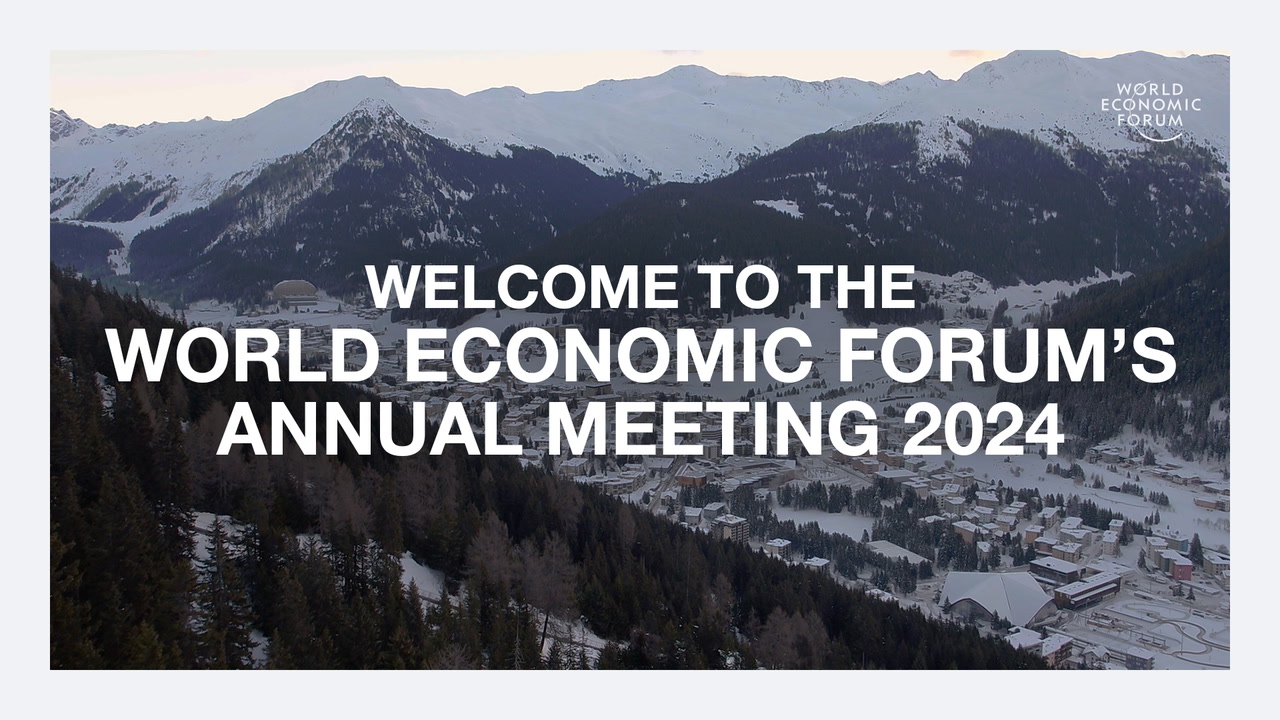Let’s dive in and discover the key takeaways from the Davos Summit 2024 World Economic Forum conference in simple terms.
Every year, the World Economic Forum meeting gathers influential figures from the government, business and civil society to address major global issues. This year’s meeting was from 15 -18 January 2024. Interestingly, not many people wanted to talk about Israel and business leaders were pretty confident that there won’t be a recession in 2024.
But beyond these headline topics, leaders shared a common wish—to rebuild trust worldwide. The meeting had a lot more going on and we’re here to share the top five things we learned after a week of talks with big shots from the business and government worlds.
This message was by Klaus Schwab, the founder and Executive Chairman of World Economic Forum, at the 54th annual meeting of the WEF in Davos, Switzerland.
Davos Summit 2024 – 5 Things to Know
This year’s gathering brought together 3,000 participants from diverse backgrounds, including 1,600 corporate executives, 350 government leaders, scholars, civil society figures and entrepreneurs. Despite the exclusive nature of the event, with luxurious accommodations and networking opportunities, the focus was on addressing global issues. Now that the summit is over, scroll through the top 5 takeaways to see what you missed.
1. Humans are Going to Have Better Tools – AI won’t Kill Us

2. War and Uncertainty – Little Talk About Israel and Hamas
At the 54th World Economic Forum in Davos, leaders discussed
Although, there wasn’t much talk about the conflict in Israel and Gaza, and there were no clear plans for peace.
3. Existential Climate Crisis – Let’s Face It
At the Davos meeting, leaders talked about how climate change affects health. They said –
Ajay Banga from the World Bank said we are facing a serious climate crisis, and we need to act urgently. Leaders also discussed how businesses benefit from sustainable practices and the importance of using resources wisely to fight climate change.
Developed countries were reminded by a Belgian trade unionist to help finance climate actions in developing countries. This helps prevent growing inequality worldwide. The UN’s environmental conference even introduced a “Health Day” to show how climate change impacts human health, from diseases to mental health issues.
Public Views and Business Impact of Climate Change
According to a survey, big businesses and the energy industry can do a lot to reduce the effects of climate change. Business leaders are already facing problems like disruptions in supply chains due to climate change. To be successful, businesses need to focus on being resilient and regenerative, meaning they create positive impacts rather than just avoiding negative ones.
Regeneration and Sustainable Business Models
Regeneration means rethinking how businesses work to create positive impacts. Companies like Patagonia are leading the way by using sustainable practices. The consumer goods industry is also changing because of new rules and what consumers expect.
Challenges and the Call for Change
A survey showed that only 16% of leaders feel ready for challenges due to climate change. Not being ready can cost a lot, but being resilient can add up to 15% to the world’s economy. Leaders say we need a big transformation to build a better future. They emphasize that relying on using up Earth’s resources is a bad idea, and everyone needs to go through a massive change.
4. India at Davos Summit 2024
Now that we’ve learned a lot about what happened at the 54th World Economic Forum Summit in 2024, let’s take a closer look at the history of WEF and why it’s such an important event.
World Economic Forum: Beyond Davos
When people talk about the World Economic Forum (WEF), they usually think of the beautiful town of Davos in the Swiss Alps.
But WEF isn’t just about its yearly meeting; it has a bigger purpose that goes beyond the snowy mountains.
WEF vs. Davos: What Sets Them Apart?
The World Economic Forum is famous for its week-long yearly meeting in Davos, Switzerland, where high-profile individuals like business leaders, billionaires, heads of state, academics, and celebrities gather to discuss global challenges at a lofty 5,000 feet above sea level. However, once the meetings are done, WEF goes back to its headquarters in the suburbs of Geneva, leaving Davos until the next summit.
Origin of World Economic Forum
Klaus Schwab has been the driving force behind the World Economic Forum (WEF) since its inception. In 1971, he laid the groundwork by hosting the first meeting in Davos, emphasizing accountability for business leaders beyond shareholders.
Evolution and Global Expansion
Renamed in 1987, WEF expanded its guest list to include politicians, NGOs, scientists, and cultural leaders. Historical milestones followed, such as the end of the Cold War and the symbolic handshake marking the end of apartheid.
Schwab’s Full-Time Focus
In 2003, Klaus Schwab transitioned to lead WEF full-time and left his post as a professor at the university of Geneva. This marked a transformative period, as the forum’s participants grew from 450 in 1971 to over 2,700 in 2023, showcasing its global impact.
WEF’s Financial Success
Remarkably, WEF, despite being a non-profit organization, demonstrated financial prowess, earning nearly $500 million in the 2022/2023 financial year. Its revenue-generating capabilities, if viewed as a for-profit entity, could surpass a billion dollars.
Leadership and Operations
Today, Klaus Schwab and WEF are guided by a Board of Trustees, featuring influential figures like Al Gore, Yo-Yo Ma, and Christine Lagarde. The day-to-day operations are overseen by WEF’s president, managing directors, and executive committee.
Davos: Beyond the Summit
WEF’s headquarters are not confined to Davos; it operates with offices in major cities globally. It coordinates regional meetings and summits on diverse topics, from jobs and AI to addressing the climate crisis.
The Forum also operates 10 sector-specific centres, such as the centre for cybersecurity or the Centre for Nature and Climate. Each centre invites corporations, start-ups and governments to get involved through related initiatives. For example, the centre for health and healthcare has initiatives around protecting women and girls’ health, health workforces and the future of personalized well-being.
Sister Organizations and Global Impact
WEF extends its influence through sister organizations, focusing on empowering young people for social change. Initiatives like the Global Shaper community, boasting 15,000 members in 150 countries, highlight the forum’s commitment to global collaboration. And every year, the WEF also publishes several key reports, like the Global Gender Gap Report or the Global Risks Report, which serve as reference in the academic sector, for businesses and in the media.
Beyond the Summit: Year-Round Initiatives
While Davos remains central, WEF has grown beyond the confines of its annual summit. It operates year-round with full-time employees, contributing to significant global initiatives.
For example, the rapid development of Covid 19 vaccine prototypes during the pandemic was made possible after a global initiative to fight epidemics was launched at Davos in 2016.
The 1t.org platform – an initiative to plant, restore or conserve 1 trillion trees by the end of the decade – was launched in Davos by Salesforce CEO Marc Benioff and his wife Lynne in 2020.
The launch of EDISON Alliance, a branch of WEF which has helped more than 450 million people access affordable digital services, followed in 2021.
Davos: Criticisms and Environmental Concerns
Despite its successes, Davos and WEF face criticisms of being an echo chamber for the elite. Concerns about financial transparency, unequal representation, and high participation costs have fueled skepticism. Environmental activists also raise issues about the event’s environmental impact, with private jets and sustainability concerns drawing attention.
WEF’s Defense and Vision
In a world accustomed to virtual gatherings, some question the necessity of large in-person events. However, WEF argues that the best progress happens when people come together, emphasizing the unique value of the Davos summit. As WEF navigates complexities and critiques, it remains dedicated to fostering global cooperation for a better future.
Davos 2024 summit – Optimism, Questions and Unanswered Doubts
As the Davos 2024 summit wraps up, it makes you wonder: Is everyone really that sure about AI being a game-changer, or is there more to it? Why wasn’t there much talk about serious issues like the Israel-Gaza conflict? And can we really be so confident about fixing climate change?
It’s like leaving the summit with more questions than answers. The optimism feels a bit like a polished surface and you start wondering if the solutions they talked about are just for show or if they’ll really make a difference. The doubts and worries seem to stick around even after the discussions end. Guess we’ll have to wait and see if Davos leads us to a better world or if it’s just a fancy talk.

